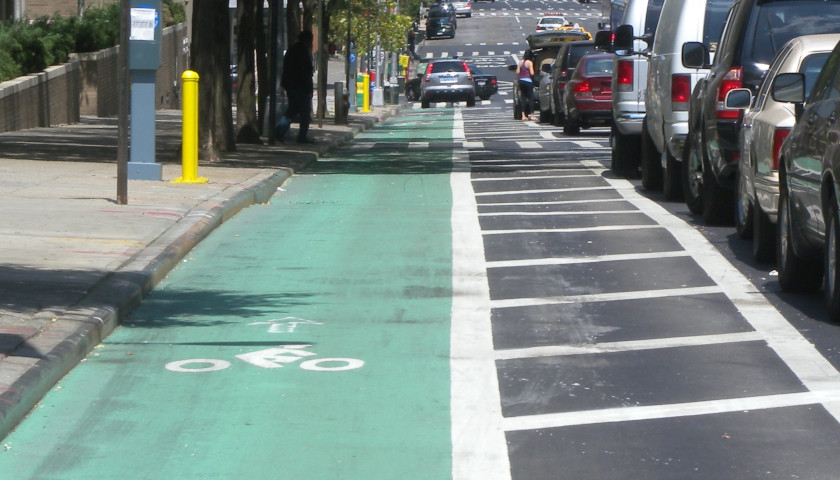The Twin Cities Met Council plans to continue dumping money on additional bike lanes across the metro area, but a study published Friday by The Star Tribune found that city leaders are not being “forthright” about the proposal’s effectiveness.
Writing for The Star Tribune, local marketing executive Doug Berdie decided to conduct a study of his own after Minneapolis officials claimed that bicycle use accounts for “five percent of commuting.”
“And, yet, we residents have seen no proof that the five percent claim (small as it is) is even accurate. Because of this, I decided to undertake limited pilot research, in search of some actual facts about usage of the Minneapolis bicycle lanes that are, increasingly, inconveniencing those who choose not to, or are unable to, use a bicycle as their main mode of transportation,” Berdie writes.
Over the course of five months, Berdie physically observed car traffic compared to bicycle traffic along 19 different roads in Minneapolis that have bicycle lanes, taking “10-minute counts of the number of bicycles and other vehicles that pass a given spot on the road.”
Berdie found that of the “1,843 vehicles counted,” just 46 were bicycles, which means that bicycles account for only 2.5 percent of commuters, and not the 5 percent claimed by the city.
What this means, according to Berdie, is that “33 percent of the available roadway has been allocated to bicycles,” even though they only make up 2.5 percent of all traffic on these roads.
Berdie argued that city officials need to “share the total cost of constructing and maintaining bicycle infrastructure.” In one case, Berdie says that most bicyclists he spoke with weren’t able to explain the purpose of the light signals along several lanes, but those traffic lights likely come with a significant expense.
As The Minnesota Sun reported in September, the Met Council’s 2040 plan for transportation includes an investment of $700 million on expanding bike lanes, which is equivalent to the amount it plans to spend on expanding its roadways.
That 2040 plan acknowledges that “congestion will not be eliminated or significantly reduced in the Metropolitan area,” and even predicts that traffic congestion will “worsen.”
“The city’s attempt to use social engineering to change transportation behavior seems to be failing,” Berdie concludes his study. “Continuing to spend more and more money building and maintaining bicycle lanes is unlikely to boost ridership much and is certainly likely to irritate more and more motorists needlessly.”
– – –
Anthony Gockowski is managing editor of Battleground State News and The Minnesota Sun. Follow Anthony on Twitter. Email tips to [email protected].
Photo “Bike Lane” by Jim.henderson CC1.0.




